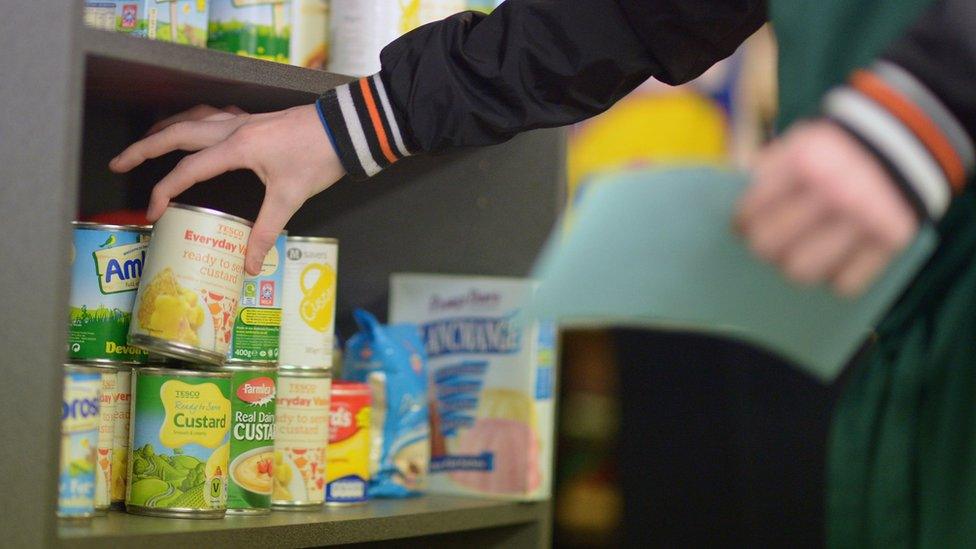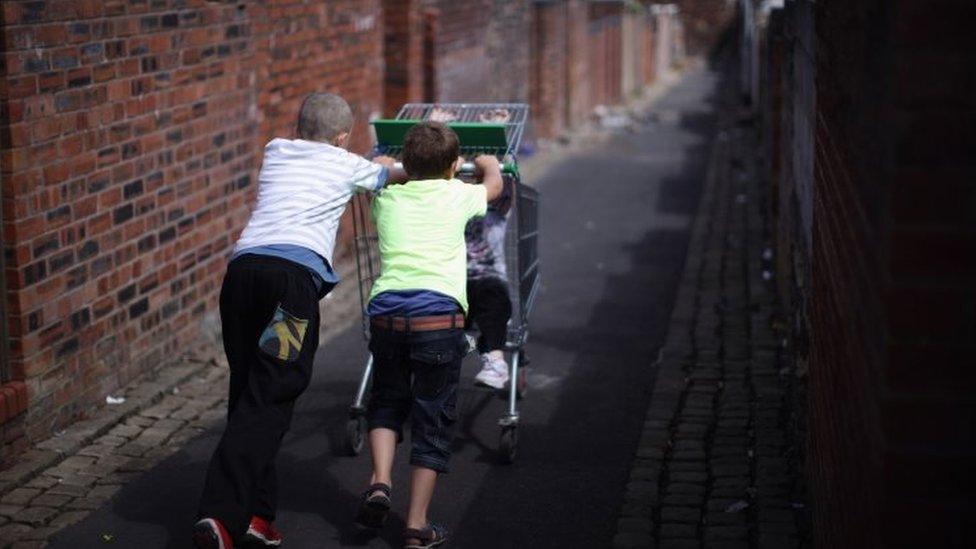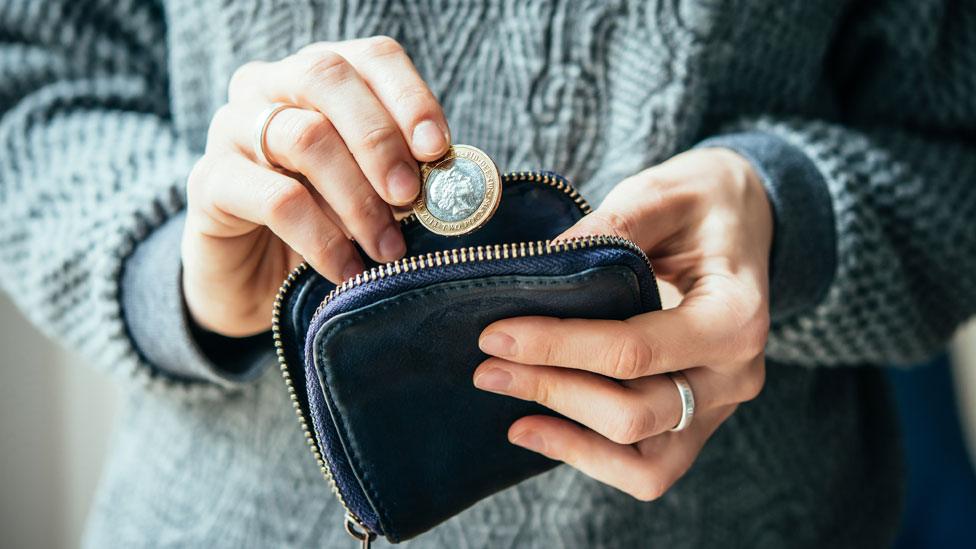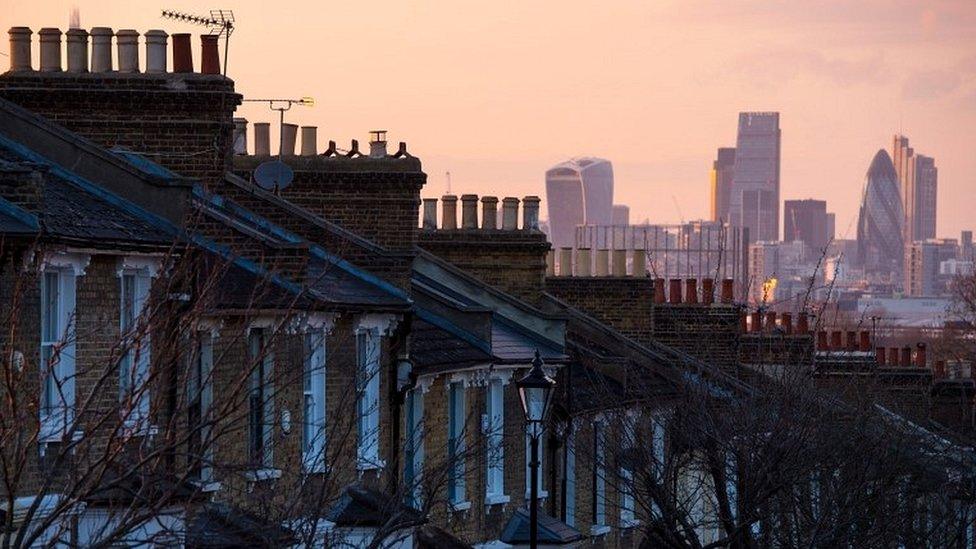Poverty hits more children and pensioners, says charity
- Published
- comments
Pensioner poverty: 'It's heat or eat'
Thousands of people are struggling to make ends meet in the UK every day, the Joseph Rowntree Foundation has said.
An additional 700,000 UK children and pensioners have fallen into relative poverty - households with less than 60% the median income - over the past four years.
The charity said it was the first time in 20 years that poverty in these groups had seen sustained rises.
Ministers say their support is helping pensioners and families out of poverty.
What does the report say?
According to the JRF report,, external since 2013 an extra 300,000 pensioners and 400,000 children are now living in poverty and the "prospects for solving" the problem "currently look worrying".
"It is a real struggle for thousands and thousands of people every day to make ends meets," Campbell Robb, chief executive of the JRF, told Radio 4's Today programme.
Despite the government protecting the value of the basic state pension since 2010, the foundation says Pension Credit, a benefit paid to the poorest pensioners, has not kept pace with rising costs.
Researchers say the rise in child poverty has been driven by stagnant wages for low income families and a freeze on benefits and changes to tax credits, which many families, both in and out of work, rely on.
'I go without'
Karla McDonagh describes herself as "on the bread line".
The 31-year-old from Cheshire is a single mother to son, Cameron.
"I go without as long as he's eating and happy," she said. This can mean not having things like milk, sugar or butter.
"Sometimes it can be three days before I can afford to make something decent for tea.
"It's quite stressful. I have to sit back and reflect and think of options to make things better, re-budget my money - sometimes not pay my TV licence, just so I can go out and pay £25 on food at the end of the month. But I always get through it," she said.

Some people are having to make a choice between heating and eating
For Flo Singleton, she struggles to get by with her pension from a part-time job.
"I have worked, I have not scrounged all my life," she said. "[But it has been] part-time only, because you have to fit it around the kids, don't you?"
She has resorted to spending time travelling on buses to keep warm, rather than turning on the heating at home.
Ms Singleton added: "It's heat or eat isn't it? If you go out, you don't have to have your heating on, do you? If you go on the buses, it doesn't cost you."
'A warning sign'
The charity says ending the benefits freeze is the single biggest change the government could do to help the 14m people - 4m children and 1.9m pensioners - now living in poverty.
New threats to the poorest households include rising housing costs, higher food and energy bills, debts and not being able to contribute to a pension, said the foundation.
The latest figures represent a "real warning sign that our hard-fought progress is in peril," Mr Robb added.
Shadow work and pensions secretary Debbie Abrahams said the figures were "totally unacceptable" and "a truly terrifying prospect for millions trying to make ends meet".
A government spokesman said since 2010, the number of people in absolute poverty - an assessment of basic living needs which takes into account a household's access to services as well as income - had fallen by more than 500,000.
He said: "We are spending an extra £4.2bn on pensioners, carers and disabled people next year, and continue to spend around £90bn a year supporting people of working age, including those who are out of work or on a low income."
What is relative poverty?
The report's reference to relative poverty, external means that a family has an income of less than 60% of median income for their family type, after housing costs.
For couples with no children, this is an income anything less than £248 a week. For a single person with no children, it is anything less than £144.
For a couple with two children, aged five and 14, an income of less than £401 a week is considered relative poverty, whilst a single parent with children of the same age would be in poverty if they had less than £297 per week.
- Published2 November 2017

- Published16 March 2017

- Published9 October 2017
